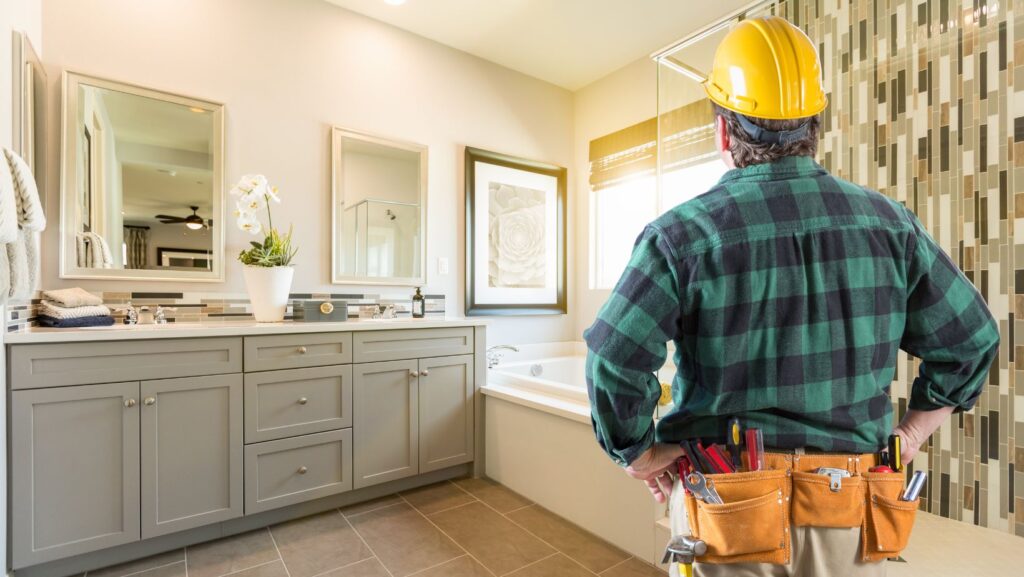
Home improvement projects can be exciting, but they can also be stressful, especially when it comes to finding and hiring the right contractor. Whether you’re embarking on a major renovation or a minor repair, choosing a reliable and trustworthy contractor is essential for a successful outcome. This comprehensive guide will walk you through the entire process, from defining your project scope to signing a contract, ensuring a smooth and stress-free experience.
Defining Your Project Scope: The Foundation for Success
Before you even start searching for home repair contractors, take the time to clearly define your project scope. What exactly do you want to achieve? Are you looking to remodel your kitchen, add a new bathroom, repair a leaky roof, or simply refresh your interior painting? Understanding the specifics of your project will help you identify contractors with the relevant expertise and experience.
Create a detailed list of the work to be done, including any desired materials, finishes, and features. This will serve as a blueprint for your project and help you communicate your expectations effectively to potential contractors.
Researching and Shortlisting Potential Contractors: Due Diligence is Key
Once you have a clear vision of your project, it’s time to start researching potential contractors. Begin by seeking recommendations from friends, family, neighbors, or colleagues who have recently completed similar projects. Their firsthand experiences can offer valuable insights and help you create a shortlist of potential candidates.
Online resources can also be helpful. Check out review sites and online directories to read reviews and ratings from other homeowners. Look for contractors with a strong reputation for quality workmanship, reliability, and good communication.
Verifying Credentials and Insurance: Don’t Skip This Step
Before hiring any contractor, verify their credentials and insurance. Ensure that they are licensed and insured to perform the type of work you need. Licensing requirements vary by state, so check with your local licensing board.
Ask to see proof of insurance, including general liability and workers’ compensation insurance. This protects you from liability in case of accidents or damage during the project.
Requesting and Comparing Estimates: Getting the Highest Value
Contact your shortlisted contractors and request detailed written estimates. Be sure the estimates include a breakdown of costs for labor, materials, permits, and any other relevant expenses.

Compare the estimates carefully, but don’t simply choose the lowest bidder. Consider the contractor’s experience, reputation, proposed timeline, and the quality of materials they intend to use.
Checking References and Past Work: A Glimpse into Their Track Record
Don’t hesitate to ask for references from past clients. Contact these references to inquire about their experience with the contractor. Ask about the quality of workmanship, adherence to timelines, communication, and overall satisfaction with the project.
If possible, ask to see examples of the contractor’s past work. This could include photos, videos, or even visiting completed projects in person.
Interviewing Potential Contractors: Communication is Key
While references and past work offer valuable insights, a face-to-face or virtual interview with potential contractors is indispensable. This interaction allows you to delve deeper into their expertise, gauge their communication style, and assess their compatibility with your project goals. For example, if your project involves interior painting Oakville, inquire about their experience with different paint types, finishes, and techniques, as well as their approach to surface preparation and cleanup. Think of the interview as a two-way street: you’re evaluating them, and they’re assessing whether your project aligns with their skills and interests.
Prepare a list of questions beforehand to ensure you cover all essential aspects. Inquire about their experience with projects similar to yours, their preferred method of project management, and how they handle communication with clients. Ask about their availability, estimated project timeline, payment terms, and warranty policies. Pay attention to their responses and how they communicate. Are they attentive, responsive, and forthcoming with information? Do they seem genuinely interested in your project and eager to collaborate?
A good contractor will not only answer your questions but also ask insightful questions about your vision, preferences, and budget. They should be able to articulate their approach to the project, outlining their plan for addressing potential challenges and ensuring a smooth and successful outcome. Trust your instincts during the interview process. Choose a contractor who possesses the necessary skills and experience, inspires confidence, communicates effectively, and demonstrates a genuine enthusiasm for your project.
Understanding Contracts and Payment Terms: Protect Your Interests
Before finalizing your decision, carefully review the contractor’s contract. Ensure that it clearly outlines the project scope, timeline, payment schedule, materials to be used, and any warranties or guarantees.
Be wary of contractors who demand a large upfront payment. A reasonable deposit, typically around 10-30% of the total project cost, is standard practice. The remaining balance should be paid in installments as the project progresses, with a final payment withheld until the work is completed to your satisfaction.
The Importance of Clear Communication: Avoiding Misunderstandings
Maintaining open and transparent communication with your contractor throughout the project is essential, especially for projects that require ongoing collaboration and decision-making, such as extensive landscaping Oakville transformations. Regular check-ins, whether in person, via email, or through project management tools, will help ensure that everyone is on the same page and any issues are promptly addressed.
Managing Expectations and Changes: Flexibility is Key
While having a detailed plan is essential, some degree of flexibility is also necessary when working on home improvement projects. Unexpected issues can arise, leading to changes in the scope or timeline.

Discuss how potential changes will be handled with your contractor upfront and ensure they are documented in writing.
Addressing Concerns and Disputes: Open Dialogue is Crucial
If you have any concerns or disputes with your contractor during the project, address them as soon as possible. Open communication can often resolve issues before they escalate. If you cannot reach a resolution, consider involving a mediator or seeking legal advice.
Finalizing the Project and Providing Feedback: A Win-Win Situation
Upon completion of the project, conduct a thorough walk-through with your contractor to ensure that all work has been completed according to the contract and your expectations. Once you are satisfied, make the final payment and provide feedback to the contractor, whether it’s positive or constructive. Your feedback can help the contractor improve their services and provide valuable insights for future clients.
For specialized projects like interior painting, landscaping, or installing a backsplash, seeking out contractors with expertise in those specific areas can make a significant difference in the outcome. Backsplash installers, for instance, have the skills and knowledge to ensure a precise and visually appealing installation, while experienced landscaping professionals can transform your outdoor space into a tranquil oasis.
Conclusion
Transforming your home shouldn’t be a stressful ordeal. By following this guide and dedicating time to research, communication, and due diligence, you can confidently navigate the process of finding and hiring a reliable home repair contractor. Remember, the right contractor isn’t just a hired hand; they’re a partner invested in your vision, working collaboratively to turn your house into the home you’ve always dreamed of.












